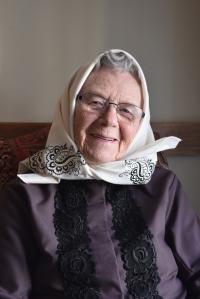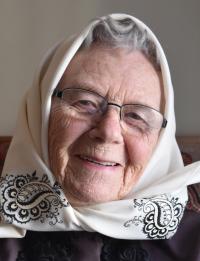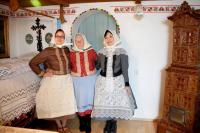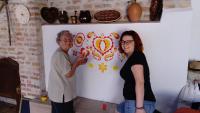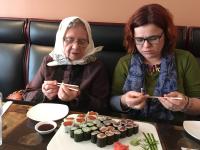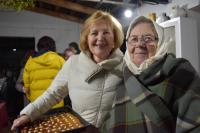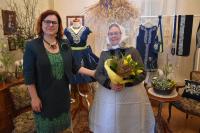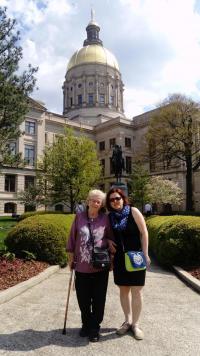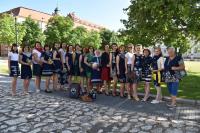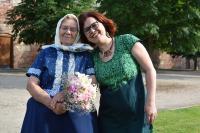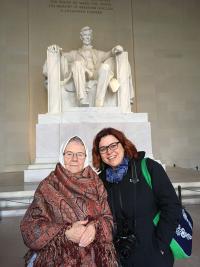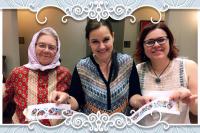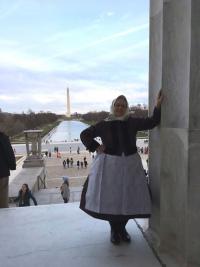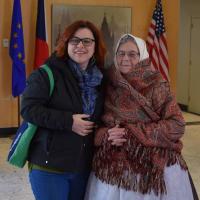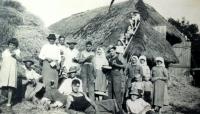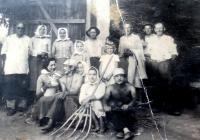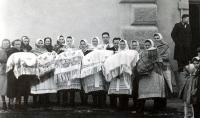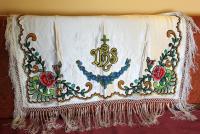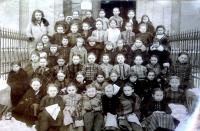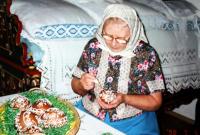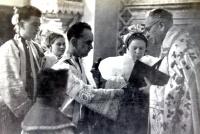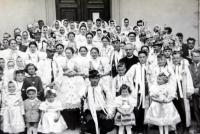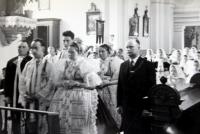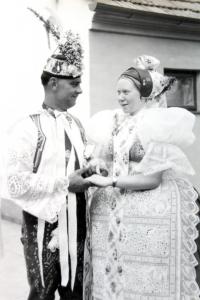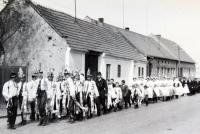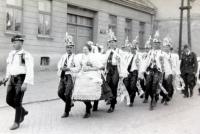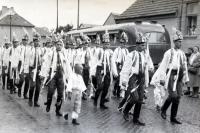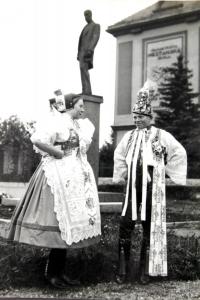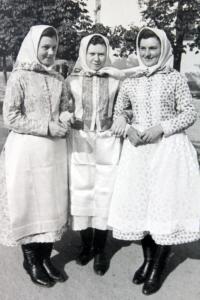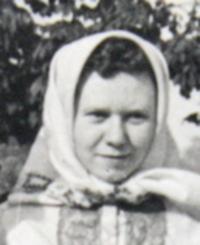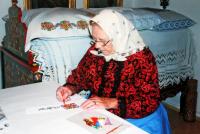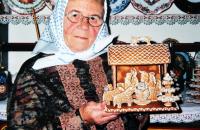“We’re a hospitable nation, and you can imagine, my uncle gave them [the Russian soldiers - ed.] a drink of wine as welcome, and they were tipsy and started picking out women for potatoes. There were about five of us families there. And my brother and I screamed so much that we saved just our mother from them. The other women had to go. The worst was... [Q: What did ‘for potatoes’ mean?] It meant rape. [Q: They took them away somewhere?] Yes; those were farmers, so in the stables, in the houses and boathouses... Well, and our neighbour Pyskatý, whose cellar we were in first, he reckoned: ‘Things are quiet, there’s no shooting, so I’ll go feed the hens to look to see if the house isn’t collapsed.’ When he came back, he thought to himself: ‘What’s this bloke doing here?’ Meaning the guard by the cellar. And when he entered the cellar he said: ‘Where are the women? Where’s my Frantie?’ And we just bawled, and the blokes said: ‘Well, they took them to peel potatoes.’ He knew, the neighbour, what was going on, so he said: ‘I’m not having that, I’m going to look for her.’ And so he went. He [the Russian soldier] warned him: ‘Stop!’ But he didn’t listen, so he shot him, and he rolled down the stairs almost to where we were, where we sat. So that was horror upon horrors, and now what... The women soon came running up, and she saw that it was her Michal there, so she tried... well, she couldn’t revive him. So she bawled over him, and all the rest of us with her. But then about half an hour later the Ruskies came back again. And the women had to go again, and they even dragged her away from the dead man, the neighbour’s missis, Francka, and they pulled her from the man and she had to go again. It was something dreadful. Then when they returned, they suffered, those women, they were all ill because of some dirt or something... had gotten into them. Well, I tell you, it was horrifying. Then they had to carry him out of there, and all in uniforms, with guns. They told my dad, seeing that we’d saved our mummy then he had to be a bit with his conscience because he nudged him in the chest, my daddy, and said: ‘You’ll go work on the bridges for that.’ And Daddy nodded that he would. And then I tell you they took that neighbour out, and they had to bury him in their back yard, but only in a shallow hole, just provisional. Well, and then after the front passed, they buried him proper.”

